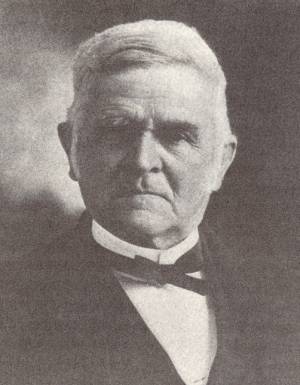

 |
|
 |
|
|
|
WILLIAM B. BRISTOL

William B. Bristol was born November 21, 1811 in Oxford, the son of Sheldon Bristol, an Oxford farmer and Methodist.
William was the youngest of five children. He was educated in the common schools of Oxford, and at age 16 he was qualified to teach. He taught in Roxbury and Woodbridge, coming to the Bowers Hill District in Oxford in 1829.
He went back to school to study medicine, but his funds ran out and he had to take up the mason's trade. He worked for $2.00 a month for his first year and $3.00 a month for his second, continuing to teach during the winter. He then hired out as a mason in Monticello, New York.
In 1833 he returned to Oxford but went to Charleston, South Carolina to follow the mason's trade. He returned in 1835, and he worked for Harvey Johnson, then building the first factory - a copper mill - in Birmingham. He taught school for some time, while continuing in the masonry business during the summer.
In the summer of 1845 he settled at the site of the present city of Ansonia. There were no dwellings on what is now Main Street, so he had to board half a mile out of the village.
He formed a partnership with Lyman Treat, dealing in masonry. In 1848 he set himself up as an independent businessman in wood and coal. There were no other yards in the village at that time.
In 1862 he was elected president of the Savings Bank, a position he held until his death, June 10, 1900.
He was a director of the Ansonia National Bank which he helped to organize. He was vice president of the bank; in addition, he was director of the Birmingham National Bank, serving as its president in 1870.
Politically, he was a Republican and served on the Board of Selectmen.
|
|
|
 |
|
 |